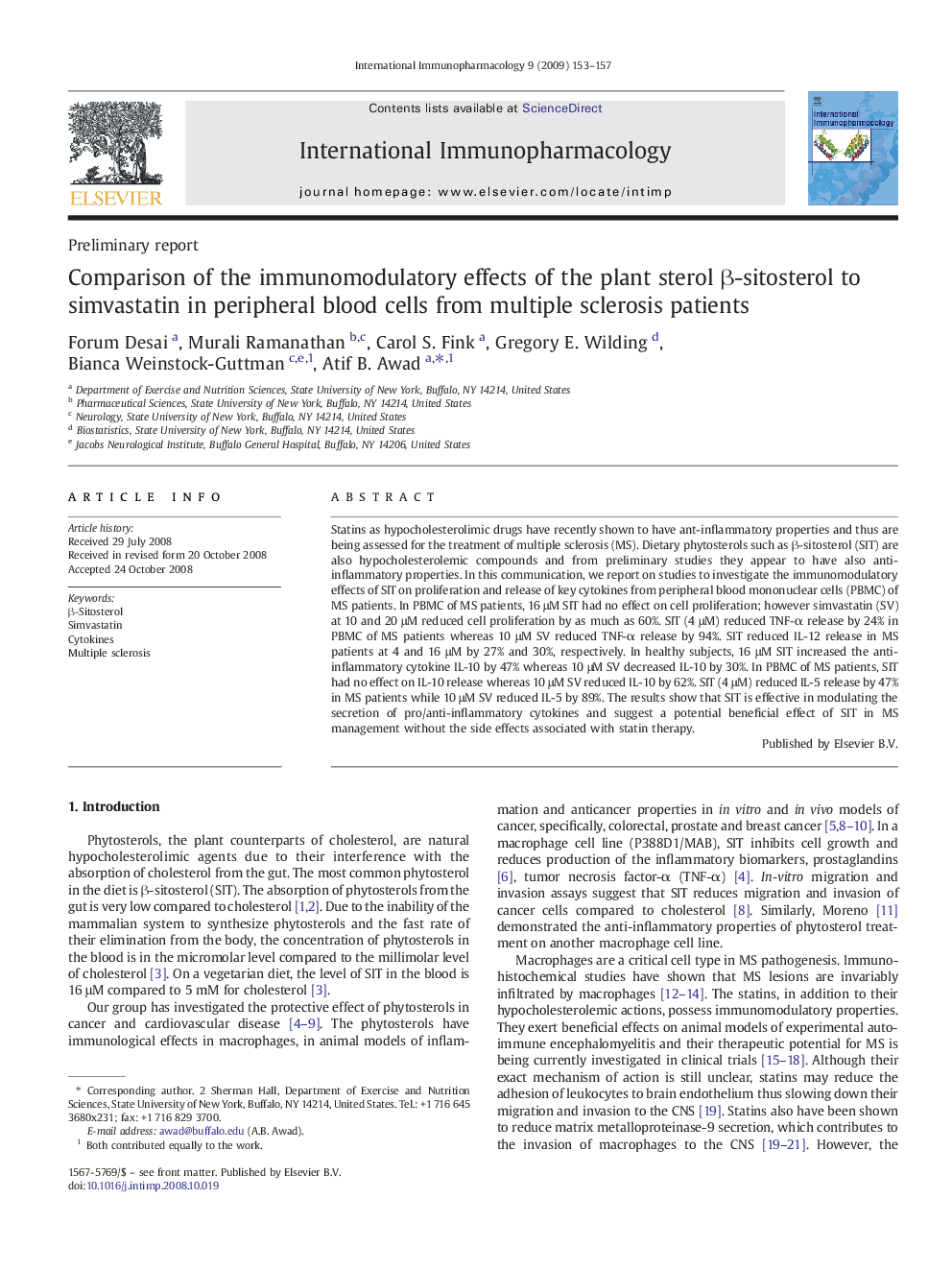| Article ID | Journal | Published Year | Pages | File Type |
|---|---|---|---|---|
| 2542195 | International Immunopharmacology | 2009 | 5 Pages |
Statins as hypocholesterolimic drugs have recently shown to have ant-inflammatory properties and thus are being assessed for the treatment of multiple sclerosis (MS). Dietary phytosterols such as β-sitosterol (SIT) are also hypocholesterolemic compounds and from preliminary studies they appear to have also anti-inflammatory properties. In this communication, we report on studies to investigate the immunomodulatory effects of SIT on proliferation and release of key cytokines from peripheral blood mononuclear cells (PBMC) of MS patients. In PBMC of MS patients, 16 μM SIT had no effect on cell proliferation; however simvastatin (SV) at 10 and 20 μM reduced cell proliferation by as much as 60%. SIT (4 μM) reduced TNF-α release by 24% in PBMC of MS patients whereas 10 μM SV reduced TNF-α release by 94%. SIT reduced IL-12 release in MS patients at 4 and 16 μM by 27% and 30%, respectively. In healthy subjects, 16 μM SIT increased the anti-inflammatory cytokine IL-10 by 47% whereas 10 μM SV decreased IL-10 by 30%. In PBMC of MS patients, SIT had no effect on IL-10 release whereas 10 μM SV reduced IL-10 by 62%. SIT (4 μM) reduced IL-5 release by 47% in MS patients while 10 μM SV reduced IL-5 by 89%. The results show that SIT is effective in modulating the secretion of pro/anti-inflammatory cytokines and suggest a potential beneficial effect of SIT in MS management without the side effects associated with statin therapy.
